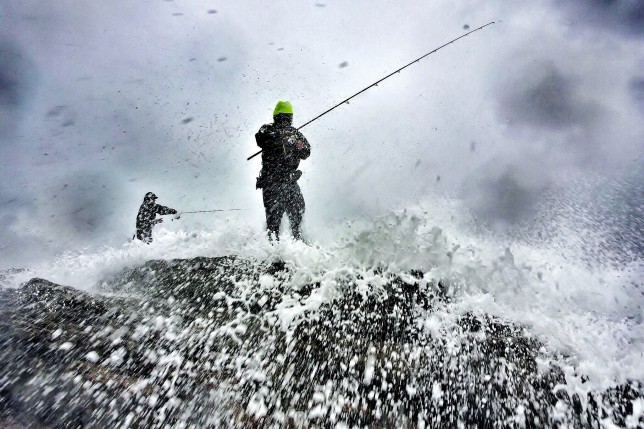Europe is holding its breath, waiting to hear if the UK is in or out of the EU. But bass anglers are holding their breath for another reason too – the EU scientific advice on the maximum sustainable level of bass landings in 2017 is due shortly.
The Spawning Stock Biomass is at a critically low level, just a bare 28 tonnes above Blim. Scientists say that below this level there is a high probability that the stock’s ability to regenerate itself will be impaired due to insufficient egg production.
For 2014, ICES recommended a maximum of 2,707 tonnes of bass to be landed in our Northern European waters. For 2015 this fell to 1,155 tonnes and for 2016 it was reduced to just 541 tonnes. Predicting the exact ICES recommendation for 2017 requires psychic powers beyond those possessed by us at the BASS Blog, but given the unwelcome trinity of a low stock level, poor year classes of young bass and the continued overfishing of our bass, it’s a no-brainer that ICES will again recommend a very low level of bass landings
How British anglers respond to this will depend upon whether the UK Remains or Leaves. If the UK Remains, then we will need to focus our lobbying on the EU Fishery Ministers and the EU Fishery Managers, persuading them to make further cuts in landings, to remove the unfairness that has outraged recreational anglers, and start favouring the most sustainable form of bass fishing: hook & line. We will however still have to work with our own Fisheries Minister as they have final say on what is implemented in Europe, as was so graphically illustrated last December when the UK and French ministers over-ruled the EU proposals on bass landings, applying increased restrictions on anglers while allowing gill netters to take more.
But if the UK Leaves, British anglers will need to concentrate their attention on the UK Fishery Minister alone, since we will no longer be able to lobby the EU as constituents. But the UK cannot make decisions alone in respect of fish stocks that do not recognise national borders; the UK and the EU will need to work together to find acceptable solutions. This will involve renegotiating quotas; deciding which EU vessels will be allowed to fish in UK waters and for what; and vice-versa.
When will these negotiations start and when will they finish? Will they result in a better or worse deal for the UK? Will the momentum on saving the sea bass be maintained, or will the UK and France revert to looking after their own short–term interests, at the expense of bass?
At the moment we can only speculate, but make no mistake, this is important moment for bass and bass anglers.

Blogged by: David Curtis / Matt Spence